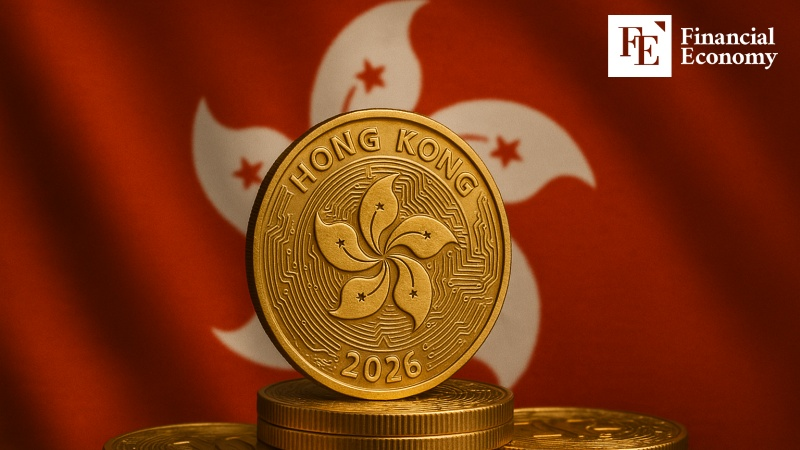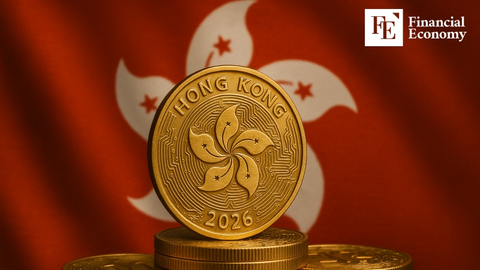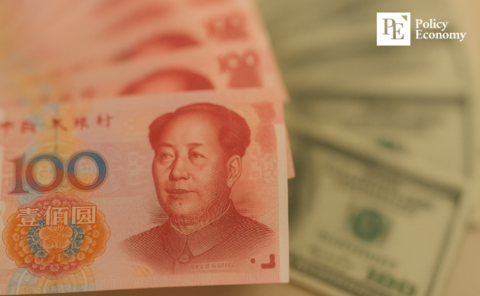Input
Changed
Stablecoin issuance and circulation brought under regulatory oversight
Strict licensing requirements, including high capital thresholds
Mainland bans even conceptual discussion of stablecoins

Earlier this month, Hong Kong began regulating stablecoin issuers and announced plans to issue its first licenses early next year. The move is rapid compared with countries like South Korea and Japan, but the decision to permit only a small number of issuers and restrict usage scope has led experts to label it one of the most conservative regulatory regimes in the world. In stark contrast, mainland China has not only banned the issuance and circulation of stablecoins but has also prohibited any research or discussion on the subject, focusing instead on expanding the digital yuan.
More Than 50 Firms Eyeing Licenses
According to the Hong Kong Monetary Authority (HKMA), the “Stablecoin Ordinance” — covering oversight and regulation of issuers of Hong Kong dollar–pegged stablecoins — took effect on August 1. Under the new law, companies granted a license from the HKMA will be allowed to issue stablecoins pegged to the Hong Kong dollar. Applications will be accepted until September 30.
To prevent overheating, authorities plan to issue licenses to only a limited number of companies. Usage will be restricted to business-to-business (B2B) transactions, and the first licenses are expected to be issued in early 2026. Reports indicate that more than 50 firms, including Ant Group — the Chinese fintech giant that owns Alipay — have applied, setting the stage for fierce competition over the limited slots.
Mainland China’s stablecoin approach has drawn attention as part of its “laboratory” use of Hong Kong. Since banning all cryptocurrency trading on the mainland in 2017, Beijing has shown strong interest in the central bank–issued digital yuan. The long-term vision is to expand its use in cross-border payments and ultimately reduce reliance on the dollar-based international financial order. Concerns over potential capital outflows and weakened financial controls, however, have led Beijing to treat Hong Kong as a testing ground.
Caution dominates official attitudes toward stablecoins. In June, People’s Bank of China Governor Pan Gongsheng said at a forum in Shanghai that “the emergence of stablecoins has made financial regulation more difficult.” His remarks were interpreted as focusing on “supervision” rather than outright denial of stablecoins’ existence. Li Yang, an academician at the Chinese Academy of Social Sciences and head of the National Institution for Finance and Development, also stressed that “integration between stablecoins and the existing financial system is an irreversible trend.”
Critics Call It a “Controlled E-Money” Regime
The perception of Hong Kong’s stablecoin rules as the world’s most conservative is closely tied to these dynamics. In a recent newsletter, Aki Chen, a researcher at crypto media outlet WuBlockchain, argued that the regulations favor a permissioned ecosystem dominated by major financial institutions while excluding startups, independent developers, and open Web3 models.
Chen noted that to issue and distribute fiat-backed stablecoins to retail investors in Hong Kong, a firm must secure an HKMA license — a process with stringent conditions: minimum paid-in capital of about USD 3.2 million, 100% backing by proprietary assets, redemption within one day, mandatory identity verification and recordkeeping, and a ban on unauthorized promotion. The industry has also expressed concern over the outright prohibition of integration with DeFi protocols and anonymous wallets.
License holders must block access from prohibited jurisdictions, prevent circumvention via virtual private networks (VPNs), and ensure compliance with Hong Kong law across partners, websites, and app distribution. In addition, under the “travel rule,” both senders and recipients must complete Know Your Customer (KYC) checks before transfers. Chen argued that this suite of measures effectively turns stablecoins into “controlled electronic money.”
The restrictive nature of Hong Kong’s rules stands out in comparison with other major jurisdictions. The United States applies “innovation exemption” provisions; the European Union allows anonymous small-value transactions; Singapore operates a gradual regulatory sandbox. Chen warned that while Hong Kong prioritizes financial stability and regulatory control to strengthen its position as a global payments hub, it risks undermining Web3’s core values of openness and anonymity. He added that “the future of Hong Kong’s digital asset ecosystem will hinge on the details of the implementation rules and whether there is any regulatory easing.”

Divergent Approaches Likely to Reshape Capital Flows
Unlike Hong Kong, mainland China remains firmly closed to stablecoins. Authorities have recently banned all research, forums, and seminars on the subject by academic and private-sector institutions in finance and technology, signaling a hardline policy that prohibits even conceptual discussion. The aim is to block all unofficial channels to prevent potential threats that privately issued digital assets might pose to financial stability and capital controls.
Since 2021, Beijing has already outlawed the mining and trading of cryptocurrencies such as Bitcoin, as well as all forms of privately issued stablecoins. The digital yuan, issued by the central bank, remains the only legal digital currency, with pilot programs and expanded use underway. In contrast to Hong Kong’s regulatory integration, the mainland is shutting down any space for privately issued digital currencies outside state control.
The two jurisdictions’ divergent policy paths are expected to significantly impact global capital flows. Hong Kong’s experiment within a regulated framework could attract some international capital, while the mainland’s expansion of the digital yuan strengthens its grip over domestic transactions and capital movements. The result is likely to be a bifurcated Chinese digital finance order.
In this dual-market environment, stablecoin issuers and exchanges will face sharply different legal and operational constraints depending on jurisdiction. The fact that a Hong Kong foothold offers no pathway into the mainland market complicates strategic planning for global firms. Over the long term, market participants warn, the separation could entrench a competitive divide in Chinese digital currency ecosystems — a split that could ultimately challenge Hong Kong’s standing as Asia’s financial hub.





















